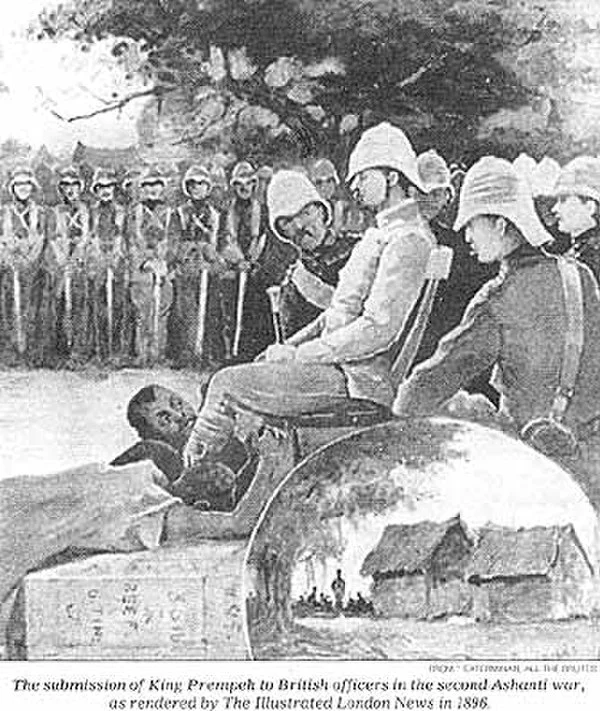The 4th Anglo-Ashanti War spanned from December 1895 to February 1896. The war started on the pretext of failure to pay the fines levied on the Ashanti monarch by the Treaty of Fomena after the 1874 war. Sir Francis Scott left Cape Coast with the main expeditionary force of British and West Indian troops in December 1895, and arrived in Kumasi in January 1896.
The Asantehene directed the Ashanti not to resist, but casualties from sickness among the British troops were high. Among the dead was Queen Victoria's son-in-law, Prince Henry of Battenberg. Robert Baden-Powell led a native levy of several local allies in the campaign. Soon, Governor William Maxwell arrived in Kumasi as well. The Ashanti confederation was dissolved, and the protectorate secured. However, the British did not fully occupy the area. One estimate of the casualties suggests losses of 6000.
Baden-Powell published a diary of life giving the reasons, as he saw them, for the war: To put an end to human sacrifice. To put a stop to slave-trading and raiding. To ensure peace and security for the neighbouring tribes. To settle the country and protect the development of trade. To get paid up the balance of the war indemnity. He also believed that if a smaller force had been sent, there would have been bloodshed. The urgency for the British in instigating the conflict, was based on a fear of losing out to the French from the west and the Germans from the east, in the rush for Ashanti gold and other resources.
Asantehene Prempeh I, was arrested and deposed. He was forced to sign a treaty of protection, and with other Ashanti leaders was sent into exile in the Seychelles. He was held at Elmina Castle for 4 years, deported first to Sierra Leone and then to the Seychelles. As the King was being taken away, he is reported to have said to Hendrik Vroom the African British Administrator, “Nnaba Gyeme” but the anguished Mr. Vroom was powerless to assist the King of Ashanti.
